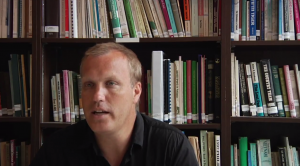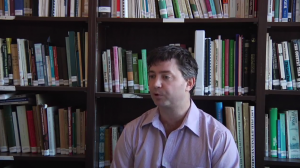死刑在中国:68与55的差别有多大?
Memo #21 – 中国的死刑几乎占据了世界的一半。最近,中国在考虑减少适用死刑罪名的数量。之前,全国人大常务委员会立法草案,提出要将适用死刑罪名从68条删减到55条。这与之前究竟有多大的不同呢?
The Privatization of Security in Indonesia
Memo #20 – Violence is becoming more frequent in Indonesia and is taking on new forms. There have been attacks by the Islamic Defenders Front (FPI) against Christian churches in greater Jakarta over the past two years. This has raised concerns about the future of democracy and religious tolerance in Indonesia. Large Islamic organizations, especially Muhammadiyah and Nahdlatul Ulama, have deplored these acts of violence conducted in the name of religion. Major metropolitan newspapers are reporting that many Jakarta residents have called for the FPI to be banned even while recognizing that this could further radicalize members of the organization.
Analysis of the Cross-Strait Economic Cooperation Framework Agreement between Taiwan and China
Memo #19 – On August 17th, 2010, the Taiwanese legislature passed the “Economic Cooperation Framework Agreement” (ECFA). This is an agreement between Taipei and Beijing, signed on June 29th, 2010, towards creating a cross-Strait free trade agreement. Some see economic integration as the precursor to political integration. But even after the ECFA’s successful ratification, the electoral strategies of Taiwanese political parties make cross-Strait normalization far from a forgone conclusion.
Regulating Pacific Seasonal Labour in Australia
Memo #18 – Developed economies throughout the Asia Pacific region are grappling with how to design immigration policies that balance domestic concerns about labour shortages with respect for human rights and the need to maintain good bilateral relations with sending countries. In 2008, the Australian government piloted a scheme for bringing seasonal workers from four Pacific Island countries (Papua New Guinea, Kiribati, Tonga, and Vanuatu) to fill the gaps in Australia’s horticultural industry.
Dr. Andrew M. Fischer Discusses Development Issues in China and Tibet
Memo #17 – In a 5-part interview, Dr. Andrew M. Fischer talks about the significance of the International Association for Tibetan Studies (IATS). He underlines that the IATS creates a unique setting where Tibetans from China, India, and abroad can meet for academic and professional discussions. When discussing the Western Development Project and Tibet-related development, he emphasizes that China has been replicating the growth model of its coastal areas in its western areas. This model of focusing on growth poles resulted in phenomenal growth in the western areas, although a result may be intensified inequalities for those who live near the poles. Tibetans are fundamentally disadvantaged by economic developments that are centred in urban areas, as those areas are controlled by outside governments, companies, and investors. Fluent Chinese speakers with outside connections benefit most from the economic conditions.
Canadian Mining and Human Rights in Asia: Building an Advantage or Dismantling Competitiveness?
Memo #16 – On September 20, 2010, Canada’s House of Commons will give third reading to the Private Members Bill, C-300. If passed, it will have significant implications for the Canadian extractive industry’s nearly $9 billion worth of mining assets throughout the Asia-Pacific region. It is expected to draw fierce opposition from the Conservative side of the House. Although the proposed law has sparked a much-needed debate on mining and human rights, it is deeply flawed.
65 Years After The Asia Pacific War: The End of History Politics?
Memo #15 – It is not that the contentious issues have been resolved, or that a general history lovefest has broken out across East Asia. But international exchanges over historical controversies have been toned down, especially between South Korea and Japan. The 65th anniversary of Japan’s surrender passed quietly on August 15th, 2010. The U.S. ambassador to Japan’s participation in the ceremony to commemorate the atomic bombing of Hiroshima on August 6th was the most commented-on element of the anniversary.
Nelson Rand, a Canadian journalist wounded in Bangkok analyzes the Thailand conflict
Memo #14 – Nelson Rand is a Canadian journalist based in Bangkok who has been covering insurgencies and political protests in Thailand for the past 6 years. He was wounded while covering the protests earlier in the summer. He is a graduate of the Master of Arts – Asia Pacific Policy Studies (MAPPS) program at UBC.
The “Directed Public” of China’s Public Intellectuals
Memo #13 – Back in 2004, Guangzhou’s People Magazine Weekly listed their pick of China’s 50 top public intellectuals – writers, lawyers, and academics who lead on public issues. Not any more. Have China’s public intellectuals disappeared?
The Prospects for Tibetan Self-Rule
Memo #12 – The imprisonment of Tibetan environmentalists in June and July 2010 and the stalled negotiations between the Dalai Lama’s representatives and Beijing make it hard to imagine that more tolerant Chinese rule in Tibet is on the horizon.


